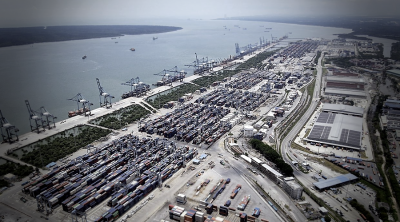
Petaling Jaya ( Sin Chew Daily) — Like it or not, a new normal has rapidly developed in all economic sectors, including how we live, study, work and interact after the COVID-19 pandemic, says finance minister Tengku Datuk Seri Zafrul Tengku Abdul Aziz.
He said digitalization would be the new yardstick for all sectors where changes would be taking place in different ratios and scales.
In an exclusive interview with Sin Chew Daily, Zafrul said the COVID-19 pandemic has changed the way we live and work and it also made us realize how our trading network is connected.
"The impact of the pandemic on the economy and companies is not clear at the moment, and the (economic) recovery would depend on how long the pandemic will last and how quickly the vaccine can be developed.
"But one thing is for sure, this global medical crisis accelerates the pace of digitalization."
"How do we stimulate companies to serve new consumption patterns digitally?"
Zafrul pointed out that the Ministry of Finance, the Ministry of International Trade and Industry, Economic Planning Units and other agencies have contacted specific areas to jointly formulate overall strategies and structural reforms to existing ecosystem to ensure that the post-epidemic economy can recover quickly and the economy is sustainable as well.
"How can we ensure that our economic structure remains seamless for digitalization, so that our business can adapt to the current crisis more smoothly? How do our workforce quickly upgrade skills or retrain to take on the challenges due to changes in business models?" he asked.
Based on this, Zafrul said the Ministry of Finance has begun to plan ahead and conduct research on policies, regulations and measures for long-term and post-pandemic to attract foreign direct investment (FDI) in digital economy. By supporting the competitiveness in digital economy, the FDI is one of the ways to assist in economic recovery.
He said FDI in the digital economy can help growth in the supply chain of technology, professional skills and employment at various levels right from education to agriculture, wholesale to retail, leisure to entertainment, sports, food and beverage sectors.
“In fact, we have carried out discussions with relevant ministries and agencies such as Science, Technology and Innovation Ministry and Malaysia Digital Economy Corporation to explore on having a more steady digital economy facilities for those involved in gig economy and start-ups to develop further,’’ he said.
Zafrul said the pressure caused by the pandemic on the existing supply chain has revealed the importance of the entire ecosystem and the significance to improve some sectors to be self-sufficient. For instance, food security is of utmost importance in agriculture.
For example, he said, many banks have shifted most of their business to digital operation and to a large extent perform many online transactions. However, there are still some people who do not have bank accounts or cannot open bank accounts because they do not have the correct risk profile.
As for enterprises, there are still many small and medium enterprises that do not obtain financial services due to their risk profiles or non-bank customers who do not rely on banking services.
"For these stakeholders, after the COVID-19 outbreak, we must think about the existing credit scoring methods, how to collect and evaluate the data digitally, which is different from the current scoring method," he said.
Zafrul pointed out that in the entertainment sector, social distancing and lockdown measures may cause sports events and entertainment activities to be deferred or called off, but a surge in consumption related to family, media and content delivery has been seen.
ADVERTISEMENT
ADVERTISEMENT


































